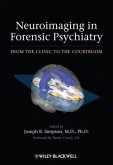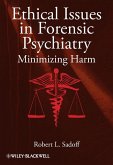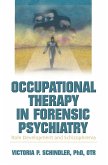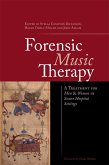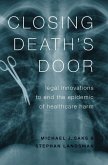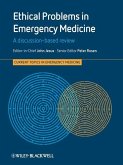Ethical medical practice and treatment in psychiatry are based onthe concept of first do no harm. However, this cannot, and doesnot, apply to forensic cases where there is no doctor-patientrelationship and the forensic psychiatrist may indeed cause harm tothe examinee. In this book, Robert Sadoff analyzes the ethicalissues affecting forensic psychiatric practice, especially thosepromulgated by the American Academy of Psychiatry and the Law.Within those guidelines, he looks at individual bias, vulnerabilityof the examinee, and potential harm to the mental healthprofessional. The book discusses each of the procedures ofthe forensic expert separately with respect to minimizing harm. Ithas been written with an international audience in mind andfeatures chapters reviewing the European and UK perspectives, byEmanuele Valenti and John Baird, respectively. Robert Sadoff addresses the long-term harm that can be eitheravoided or minimized through careful planning and application ofethical principles. He is not advocating that the harm can betotally eliminated, because that is impossible in the adversarialsystem in which forensic psychiatrists work. However, there aremeans by which harm may be minimized if care is taken during theassessment, the report writing, and the testimony phase of theproceedings. The book develops the scope of forensic psychiatryfrom the standpoint of administrative, civil and criminal cases. Itpresents the practical issues involved in conducting forensicpsychiatric assessments under various conditions plus specialconsiderations, such as bias, minimizing harm, developing atherapeutic approach, and elaborating on various vulnerableindividuals who are frequently examined in forensic cases. Theseinclude juveniles, mentally retarded, autistic, sexual assaultvictims, the elderly, the organically damaged, the psychotic, andmentally disabled prisoners. Immigrants are covered in a chapter bySolange Margery Bertoglia. The ethical issues in conductingforensic psychiatric examinations and presenting psychiatrictestimony in court are examined and discussed. Cases illustratingthe difficulties involved punctuate the presentation. The bookcloses with a fascinating account of the legal perspective by DonnaVanderpool. In summary, this book illustrates the ethical and practicalissues that affect forensic psychiatric practice. The question isnot what we do, but how we do it, and which standards, ethicalguidelines and personal values contribute to the total picture.Despite the fact that we cannot always adhere to the doctrine of"primum non nocere," we can minimize the harm caused inherently bythe adversarial system in which we participate. Praise for Ethical Issues in ForensicPsychiatry "One of the founding giants of the forensic psychiatric fieldhas written here far more than a "mere" ethics textbook. Instead,this compendium serves multiple purposes: it is a valuable primeron forensic techniques of examination and testimony, a model ofbest forensic practices, and an instruction on the mostappropriately civilized way in which to conduct oneself as aforensic psychiatrist. The success of these multiple accomplishments clearly derivesfrom characteristics of the author. In both sage advice topractitioners and in many revealing case examples, Dr. Sadoffdisplays the tact, good manners and sensitivity of a consummategentleman - a term not always associated with the hurly-burlyof courtroom work. The book's primary focus on avoiding harm to allthe parties involved in the work places it on the moral high groundof the legal system in which participating clinicians must find aplace." Thomas G. Gutheil, MD, Professor of Psychiatry andCo-Founder, Program in Psychiatry and the Law, Beth IsraelDeaconess Medical Center, Harvard Medical School
Dieser Download kann aus rechtlichen Gründen nur mit Rechnungsadresse in A, B, BG, CY, CZ, D, DK, EW, E, FIN, F, GR, HR, H, IRL, I, LT, L, LR, M, NL, PL, P, R, S, SLO, SK ausgeliefert werden.



